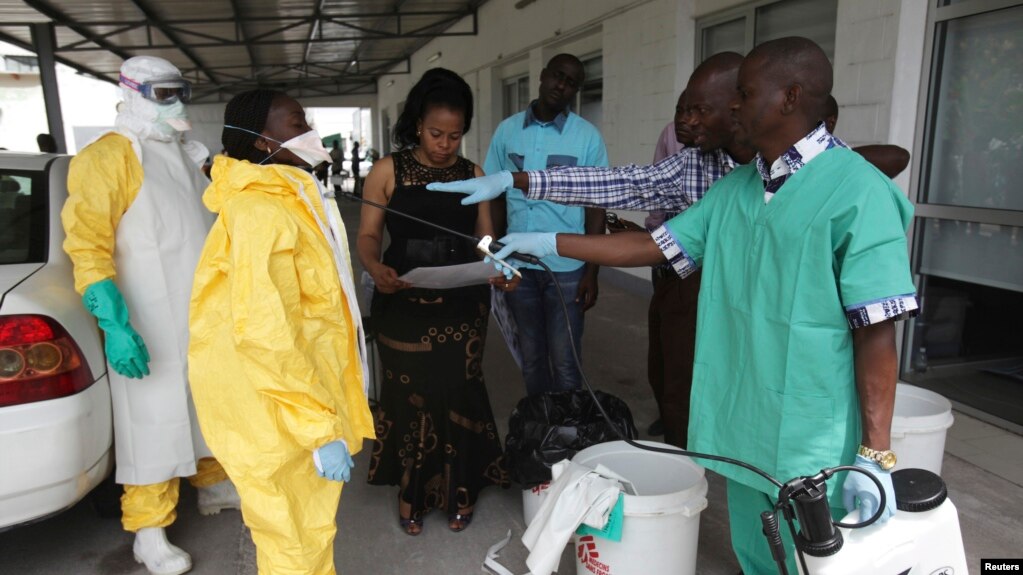
Thousands of Africans who came to the United States to escape Ebola virus disease might have to return home as another Ebola case has been found in the continent.
The World Health Organization says a second case of Ebola virus disease has been confirmed in the northern Democratic Republic of Congo.
WHO reported on Tuesday that laboratory tests confirmed the infection among 20 suspected cases of the disease.
Ebola was blamed for more than 11,000 deaths in West Africa between 2013 and 2016. Many of the victims were from three nations: Liberia, Guinea and Sierra Leone.
Congo has already experienced smaller Ebola outbreaks.
Three years ago, the U.S. government approved temporary immigrant status for about 5,000 West Africans in 2014. The Department of Homeland Security gave them permission to live and work in the United States until the virus was contained.
The special protected status was given to individuals from Liberia, Guinea and Sierra Leone.
Last year, those countries were declared Ebola free. Now, hundreds of Africans living in the state of Minnesota are about to lose their temporary immigrant status. They must either return home or get permission to stay, Minnesota Public Radio reported.
Abdullah Kiatamba is executive director of African Immigrant Services in Brooklyn Park, Minnesota. He and other immigration leaders say any move to send the West Africans home is premature. They say the three countries are still recovering from Ebola. They believe it is not safe for the immigrants to go home yet.
John Keller is head of the Immigrant Law Center of Minnesota. He says health care systems in the countries hit hardest by Ebola were already shaky before the Ebola outbreak.
"It's great these countries have been declared Ebola free, but the toll that fighting Ebola took on the countries, you have to take that into effect, too," Keller said.
Abdullah Kiatamba estimates that between 200 and 500 immigrants may lose their temporary immigrant status. U.S. officials have yet to announce an exact number. It is unclear how many of the immigrants have returned home or found other ways to make their immigration status permanent.
Kiatamba said that more than 11,000 people died during the Ebola outbreak, but that the disease affects more than just health care systems.
“The employment system, economic system, social system, health have all collapsed,” he said. “Their coming to the U.S. was a very important humanitarian step, and I think the reason for their coming has totally not been eliminated.”
At first, the temporary immigrant status was supposed to last 18 months. It was extended twice -- each time for six months.
I'm John Russell.
The Associated Press (AP) reported on this story. George Grow adapted the report for VOA Learning English. His story uses information from VOA's Smita Nordwall. Hai Do was the editor.
We want to hear from you. Write to us in the Comments Section.
Words in This Story
status - n. the condition of a person or thing as related to the law
executive - adj. of or involving execution or carrying out work-related or official duties
premature - adj. happening or existing before the usual time
toll - n. a serious effect or high cost



